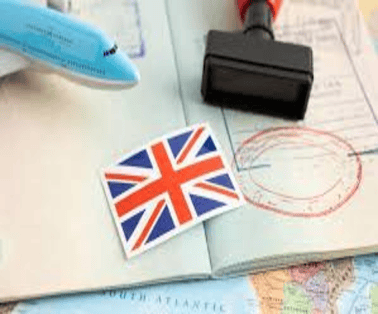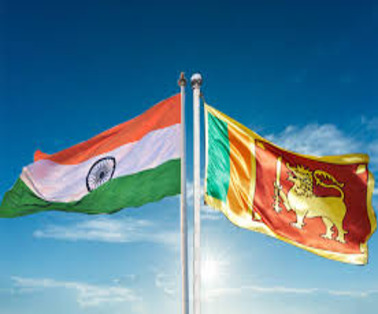The United Kingdom has passed the controversial Safety of Rwanda Bill, marking a bold step in its immigration policy. This law allows the UK government to deport asylum seekers to Rwanda, aiming to curb the number of people crossing the English Channel illegally.
Key Highlights of the Rwanda Bill
- The UK’s House of Lords has passed the Safety of Rwanda Bill to counter a challenge raised by the Supreme Court, against a controversial deportation policy.
- UK Prime Minister Rishi Sunak has often emphasised the need for stopping the inflow of small boats coming to the country, carrying migrants who are attempting to escape violence, persecution and instability in a range of countries.
- However, the plan for sending migrants to Rwanda has been divisive, with the UK Supreme Court ruling that the policy was illegal in November 2023.
What is the Rwanda Bill?
- The House of Lords, which is the upper house of parliament, passed the Safety of Rwanda (Asylum and Immigration) Bill. It essentially says that Rwanda is a safe third country for the purposes of removing its individuals to Rwanda.
- Safe third country implies that asylum seekers can be sent to a country other than where they seek asylum or where they belong, if it Is deemed safe.
- In its ruling last year, Supreme Court President Robert Reed said that Rwanda couldn’t be relied upon to not mistreat asylum-seekers.
- Citing Rwanda’s abysmal human rights record, including enforced disappearances and torture, Reed said that Rwanda practiced “refoulement,” or the practice of sending migrants back to their unsafe home countries.
- The court held there was a risk of asylum seekers being subjected to the same threats and safety concerns they have attempted to flee.
- In response to this argument, the Safety of Rwanda Bill was passed after the UK government signed a new treaty with Rwanda to “beef up protections for migrants” in December 2023
- Declaring Rwanda to be a safe country, the Bill is an attempt to ensure the policy stays.
UK Government’s Policy On Rwanda
- In April 2022, the former UK Prime Minister introduced the Migration and Economic Development Partnership (MEDP), aimed at relocating asylum seekers unrecognised by the UK to Rwanda.
- Under the scheme, people arriving in Britain as undocumented stowaways in trucks or boats would be flown 6,400 km to Rwanda.
- Once there, they would be assessed for eventual resettlement there. The timeline for being deported to Rwanda could be as short as a couple of weeks.
- Under the Memorandum of Understanding (MoU) between the two countries, the UK assesses asylum applications and arranges transportation to Rwanda.
- Rwanda then takes over, providing shelter and protection, with the sole power to grant refugee status, those denied are returned to their home countries.
- The UK government paid its Rwandan counterpart millions of pounds for housing and integrating the migrants as part of the pilot scheme, which was to initially last for five years.
- The process of integration would theoretically also involve supporting the migrants with access to training, healthcare, and shelter so they could resettle.
- It has been estimated that the UK government has paid its Rwandan counterpart £290 million so far, even before the plan is yet to come into action amid legal challenges and criticisms.
- The Guardian reported that the government would pay another £50 million if its Bill was passed.
Immigrant Crisis In UK
- Since 2018, there has been a significant increase in the number of refugees and asylum seekers attempting risky crossings between Calais, France, and Dover, England.
- The majority of these migrants and asylum seekers are from war-torn nations like as Sudan, Afghanistan, and Yemen, or from developing countries such as Iran and Iraq.
- These crossings pose an immigration crisis in Britain, which has taken a harsh stance against illegal immigration.
About Rwanda
- Rwanda is a small land-locked country in east-central Africa, 4,000 miles (6,500km) south-east of the UK.
- It borders Burundi, the Democratic Republic of the Congo (DRC), Tanzania and Uganda.
- With a landmass about one-tenth of the size of the UK, it has a population of 13.8 million.
- According to Human Rights Watch, “Rwanda is a country where it’s very dangerous to oppose the government”.
Similar Migration Policies
- Other countries, like Australia, Israel, and Denmark, have sent asylum seekers abroad.
- Since 2001, Australia has made extensive use of offshore detention camps.
- Israel, too, chose to deal with an increasing influx of asylum seekers and illegal immigrants from nations such as Sudan and Eritrea by reaching agreements with third countries.
- Those denied refuge had the option of returning to their home country or taking $3,500 and a plane ticket to one of the third countries.
- If they elected to remain in Israel, they feared arrest.
The European Migration Crisis
- Migrants first began attempting to enter Europe in large numbers – and through increasingly dangerous sea routes – in 2015, a majority of them Syrians escaping the Islamic State and the war at home.
- Other are from Morocco, Afghanistan, Pakistan, Iraq and Albania – all trying to escape difficult economic conditions and political instability.
- In 2021, more than 114,000 people risked their lives trying to reach Europe by sea; over 3,200 of them are dead or missing. Of those attempting these journeys, 40 per cent of sea arrivals are women and children.
- And though the threat of Islamic State has subsided, other factors such as the 2021 Taliban takeover of Afghanistan and the Russian invasion of Ukraine in 2022 have increased the numbers of migrants and refugees once again.
- According to the latest Frontex data, 7.2 million people have fled Ukraine into the EU since the beginning of the war, including 6.3 million Ukrainians
To Download Monthly Current Affairs PDF Click here
Click here to get a free demo
Discover all about CLAT Exam



